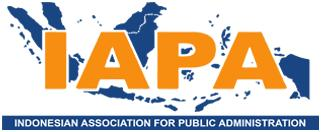Governance Analysis Framework of Disabilities in Indonesia
Abstrak
Fulfillment and protection of persons with disabilities has been realized with the approval of UN resolution A/RES/76/154. As a country that is a member of the UN, Indonesia adopted this resolution into Law No. 8/2016. So, how is the implementation and protection of people with disabilities in Indonesia? To answer this, this article uses a qualitative descriptive methodology with an ethnographic approach to qualitative analysis data processing using the Governance Analysis Framework method proposed by Hufty (2011). The research results reveal that the fulfillment and protection of people with disabilities in Indonesia is still not optimal. This is since the poverty rate for people with disabilities in Indonesia is still high, as can be seen from the low employment rate for people with disabilities. The low accessibility of education for people with disabilities makes it difficult for them to compete in the job market, resulting in low utilization of people with disabilities. Therefore, the orientation to protect oneself is decreasing due to low levels of welfare, so the role of government and organizations or institutions as well as groups of people with disabilities need to collaborate and synergize better.
Kata Kunci
Teks Lengkap:
PDF (English)Referensi
Abdul Wahab, S. (1997). Analisis Kebijaksanaan, Dari formulasi Keimplementasi Kebijaksanaan Negara. Jakarta: PT. Bumi Aksara.
Akny, A. B. (2014). Mewujudkan Good Governance melalui Reformasi Birokrasi di bidang SDM Aparatur untuk Peningkatan Kesejahteraan Pegawai. Jejaring Administrasi Publik, Th VI(1), 416–427. https://journal.unair.ac.id/download-fullpapers-admpf947b2269efull.pdf
Andriani, H., & Amsari, F. (2020). Hak Pilih Kelompok Penyandang Disabilitas Dalam Pemilihan Umum Tahun 2019 Di Sumatera Barat. Jurnal Konstitusi, 17(4), 777–798. https://doi.org/10.31078/jk1744
Anggraeni, N., Sandra, C., & Khoiri, A. (2022). Implementasi Kebijakan Pelindungan dan Pemenuhan Hak Kesehatan Penyandang Disabilitas Di Kabupaten Jember. Jurnal Kebijakan Kesehatan Indonesia : JKKI, 11(01), 1–13. https://journal.ugm.ac.id/jkki/article/view/69719
Arikunto, S. (2002). Prosedur Penelitian Suatu Pendekatan Praktek (Edisi 5). Jakarta: Rineka Cipta.
Bacon, J. (2012). The Art of Community: Building the New Age of Participation (A. Oram, Ed.; Second Edition). O’Reilly Media Inc. http://my.safaribooksonline.com
Badan Pusat Statistik. (2023). Analisis Tematik Kependudukan Indonesia: Fertilitas Remaja, Kematian Maternal, Kematian Bayi, dan Penyandang Disabilitas. Badan Pusat Statistik. https://www.bps.go.id/publication/
Barbotte, E., Guillemin, F., Chau, N., & Group, L. (2001). Prevalence of impairments, disabilities, handicaps and quality of life in the general population: a review of recent literature. Bulletin of the World Health Organization, 79(11), 1047–1055. https://iris.who.int/bitstream/handle/10665/268464/PMC2566690.pdf
Bella, A., & Dartanto, T. (2018). Persons with disabilities (PWD) and poverty in Indonesia. Malaysian Journal of Economic Studies, 55(2), 167–188. https://doi.org/10.22452/MJES.vol55no2.2
Caron, L. (2020). Disability, employment, and wages: evidence from Indonesia. International Journal of Manpower, 42(5), 866–888. https://doi.org/10.1108/IJM-01-2020-0022
Dahlan, M., & Anggoro, S. A. (2021). Hak atas Pekerjaan bagi Penyandang Disabilitas di Sektor Publik: Antara Model Disabilitas Sosial dan Medis. Undang: Jurnal Hukum, 4(1), 1–48. https://doi.org/10.22437/ujh.4.1.1-48
Desverose, N., & Priyatmoko. (2020). Keadilan Elektoral Bagi Pemilih Penyandang Disabilitas Mental Pada Pemilu Serentak 2019 Di Surabaya. Jurnal Politik Indonesia, 6(2), 104–113. https://doi.org/10.20473/jpi.v6i2.30423
Dwintari, J. W. (2021). Aksesibilitas Penyandang Disabilitas Dalam Pemilihan Umum Di Indonesia. Jurnal Ilmu Sosial Dan Ilmu Politik Universitas Jambi (JISIP-UNJA), 5(1), 29–51. https://doi.org/https://doi.org/10.22437/jisipunja.v2i1.7173
Erissa, D., & Widinarsih, D. (2022). Akses Penyandang Disabilitas Terhadap Pekerjaan: Kajian Literatur. Jurnal Pembangunan Manusia, 3(1), 1–17. https://doi.org/10.7454/jpm.v3i1.1027
Franks, T., & Cleaver, F. (2007). Water governance and poverty: A framework for analysis. Progress in Development Studies, 7(4), 291–306. https://doi.org/10.1177/146499340700700402
Gde Wiryawan, I. W. (2022). The corporate social responsibility policy in the fulfillment of facilities for workers with disability. International Journal of Research in Business and Social Science (2147- 4478), 11(1), 340–349. https://doi.org/10.20525/ijrbs.v11i1.1669
Goralzik, A., König, A., Alčiauskaitė, L., & Hatzakis, T. (2022). Shared mobility services: an accessibility assessment from the perspective of people with disabilities. European Transport Research Review, 14(1). https://doi.org/10.1186/s12544-022-00559-w
Gupta, A., & Priyadarshi, P. (2020). When affirmative action is not enough: challenges in career development of persons with disability. Equality, Diversity and Inclusion, 39(6), 617–639. https://doi.org/10.1108/EDI-05-2019-0146
Handayani, F. A., & Ichsana Nur, M. (2019). Implementasi Good Governance Di Indonesia. Jurnal Pemikiran Administrasi Negara, 11(1), 1–11. https://journal.uinsgd.ac.id/index.php/publica/article/view/7631/3772
Hill, H. (2021). A thematic analysis of library association policies on services to persons with disabilities. Journal of Documentation, 77(6), 1379–1392. https://doi.org/10.1108/JD-10-2020-0183
Hufty, M. (2011). Investigating Policy Processes: The Governance Analytical Framework (GAF). Research for Sustainable Development: Foundations, Experiences, and Perspective, 403–424. https://papers.ssrn.com/sol3/papers.cfm?abstract_id=2019005
Indriantoro, N., & Supomo, B. (1999). Metodologi Penelitian Bisnis untuk Akuntansi dan Manajemen (Edisi Pertama). BPFE Yogyakarta.
Kementerian Ketenagakerjaan Republik Indonesia. (2020). Peraturan Menteri Ketenagakerjaan Republik Indonesia Nomor 21 Tahun 2020 tentang Pedoman Penyelenggaraan Unit Layanan Disabilitas Bidang Ketenagakerjaan. Pemerintah Indonesia. https://peraturan.bpk.go.id/Details/163413/permenaker-no-21-tahun-2020
Kementerian Pendidikan Kebudayaan Riset dan Teknologi Republik Indonesia. (2023). Peraturan Menteri Pendidikan, Kebudayaan, Riset, dan Teknologi Republik Indonesia Nomor 48 Tahun 2023 tentang Akomodasi Yang Layak Untuk Peserta Didik Penyandang Disabilitas Pada Satuan Pendidikan Anak Usia Dini Formal, Pendidikan Dasar, Pendidikan Menengah, dan Pendidikan Tinggi. Pemerintah Indonesia. https://jdih.kemdikbud.go.id/sjdih/siperpu/dokumen/salinan/salinan_20230818_112509_PERMEN%2048%20TAHUN%202023_AYL.pdf
Kementerian Sosial Republik Indonesia. (2021). Pedoman Operasional Asistensi Rehabilitasi Sosial Penyandang Disabilitas. Kemensos RI. https://kemensos.go.id/uploads/topics/16384433731911.pdf
Kiernan, M. D., & Hill, M. (2018). Framework analysis: a whole paradigm approach. Qualitative Research Journal, 18(3), 248–261. https://doi.org/10.1108/QRJ-D-17-00008
Komisi Pemilihan Umum. (2021, September 27). Pemilih Disabilitas Pemilu Tahun 2019. Pusdatin. https://opendata.kpu.go.id/dataset/4e64d34ed-cd52b8986-d714dd386-2c1a4
Maulana, R., Amarini, I., & Kartini, I. A. (2019). Pemenuhan Hak Politik Penyandang Disabilitas Mental dalam Pemilihan Umum. Kosmik Hukum, 19(2), 141–150. https://doi.org/10.30595/kosmikhukum.v19i2.8219
Moleong, L. J. (2007). Metodologi Penelitian Kualitatif. Bandung: Remaja Rosdakarya.
Mustika, E. A. S., Hadi, E. N., Anharudin, Rofi’i, A., & Dewi, S. N. (2022). Stigma Pekerja terhadap Penyandang Disabilitas di Tempat Kerja. Perilaku Dan Promosi Kesehatan: Indonesian Journal of Health Promotion and Behavior, 4(2), 30–42. https://doi.org/10.47034/ppk.v4i2.6318
Ndaumanu, F. (2020). Hak Penyandang Disabilitas: Antara Tanggung Jawab dan Pelaksanaan oleh Pemerintah Daerah. Jurnal HAM, 11(1), 131–150. https://doi.org/10.30641/ham.2020.11.131-150
Noeng, M. (2000). Metode Penelitian Kualitatif. Yogyakarta: Rake Sarasin.
Pemerintah Indonesia. (2019). Peraturan Pemerintah Republik Indonesia Nomor 52 Tahun 2019 tentang Penyelenggaraan Kesejahteraan Sosial Bagi Penyandang Disabilitas. Pemerintah Indonesia. https://peraturan.bpk.go.id/Details/116978/pp-no-52-tahun-2019
Pemerintah Indonesia. (2020a). Peraturan Pemerintah Republik Indonesia Nomor 13 Tahun 2020 tentang Akomodasi Yang Layak Untuk Peserta Didik Penyandang Disabilitas. Pemerintah Indonesia. https://peraturan.bpk.go.id/Details/132596/pp-no-13-tahun-2020
Pemerintah Indonesia. (2020b). Peraturan Pemerintah Republik Indonesia Nomor 60 Tahun 2020 tentang Unit Layanan Disabilitas Bidang Ketenagakerjaan. Pemerintah Indonesia. https://peraturan.bpk.go.id/Details/148910/pp-no-60-tahun-2020
Presiden Republik Indonesia. (2020). Peraturan Presiden Republik Indonesia Nomor 114 Tahun 2020 tentang Strategi Nasional Keuangan Inklusif. Pemerintah Indonesia. https://peraturan.bpk.go.id/Details/154566/perpres-no-114-tahun-2020
Republik Indonesia. (2016). Undang-Undang Republik Indonesia Nomor 8 Tahun 2016 tentang Penyandang Disabilitas. Pemerintah Indonesia. https://peraturan.bpk.go.id/Details/37251/uu-no-8-tahun-2016
Sumarsono, S. (2004). Metode Riset Sumber Daya Manusia. Jember: Graha Ilmu.
Tan, W. (2021). Kondisi Tenaga Kerja Penyandang Disabilitas : Tantangan Dalam Mewujudkan Sustainable Development Goals. RechtIdee, 16(1), 18–36. https://journal.trunojoyo.ac.id/rechtidee/article/view/8896
United Nations. (2022). A/RES/76/154 Implementation of the Convention on the Rights of Persons with Disabilities and the Optional Protocol thereto: participation.
Van Aswegen, J., Hyatt, D., & Goodley, D. (2019). A critical discourse problematization framework for (disability) policy analysis: “good cop/bad cop” strategy. Qualitative Research Journal, 19(2), 185–198. https://doi.org/10.1108/QRJ-12-2018-0004
Ward, T. (2023). The biggest challenge people with disabilities face is other people’s perceptions.
WHO. (1980). International Classification of Impairments, Disabilities, and Handicaps: a manual of classification relating to the consequences of disease. https://iris.who.int/bitstream/handle/10665/41003/9241541261_eng.pdf?sequence=1&isAllowed=y
Widinarsih, D. (2019). Penyandang Disabilitas Di Indonesia: Perkembangan Istilah Dan Definisi. Jurnal Ilmu Kesejahteraan Sosial, 20(2), 127–142. https://scholar.ui.ac.id/en/publications/penyandang-disabilitas-di-indonesia-perkembangan-istilah-dan-defi
Widjaja, A. H., Wijayanti, W., & Yulistyaputri, R. (2020). Perlindungan Hak Penyandang Disabilitas dalam Memperoleh Pekerjaan dan Penghidupan yang Layak bagi Kemanusiaan. Jurnal Konstitusi, 17(1), 197–223. https://doi.org/10.31078/jk1719
Williams, B. R. (2017). Disability in the Australian workplace: Corporate governance or CSR issue? Equality, Diversity and Inclusion, 36(3), 206–221. https://doi.org/10.1108/EDI-12-2016-0111
Yulaswati, V., Nusyamsi, F., Ramadhan, M. N., Palani, H., & Yazid, E. K. (2021). Tinjauan Peningkatan Akses dan Taraf Hidup Penyandang Disabilitas Indonesia: Aspek Sosio-Ekonomi dan Yuridis (V. Yulaswati, Ed.; Kajian Disabilitas). Kementerian PPN/Bappenas. https://www.bappenas.go.id/datapublikasishow?q=Policy%20Paper&s=&jenis=&tahun=&page=3#
DOI: https://doi.org/10.24198/jmpp.v8i1.51348
Refbacks
- Saat ini tidak ada refbacks.
Jurnal Manajemen Pelayanan Publik Indexed By:



This work is licensed under a Creative Commons Attribution-ShareAlike 4.0 International License.


















21.png)



.png)